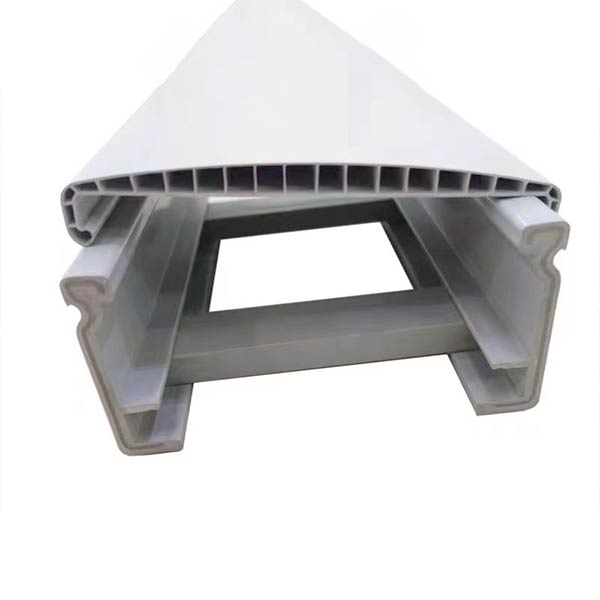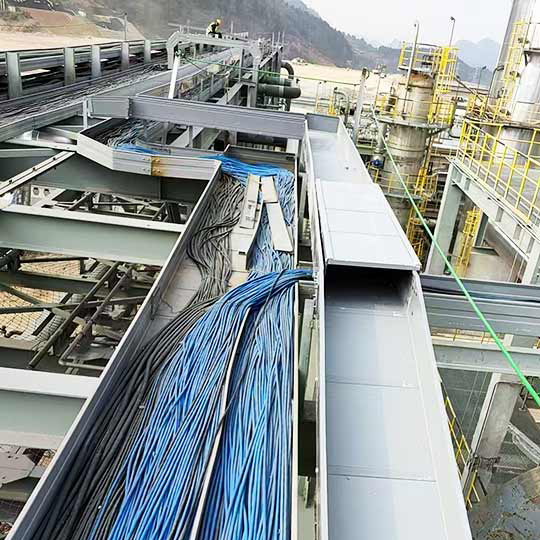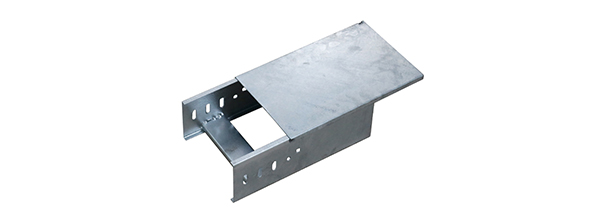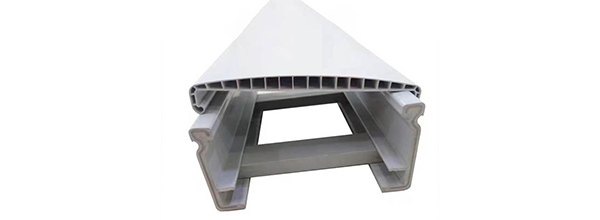
Polymer cable trays are becoming increasingly popular in industrial, commercial, and outdoor electrical installations. Known for their lightweight, corrosion-resistant, and non-conductive properties, polymer trays provide an excellent alternative to traditional metal cable trays, especially in environments where corrosion, electrical insulation, or weight is a concern. Choosing the right polymer cable tray can improve installation efficiency, cable safety, and long-term reliability.
Table of Contents
Advantages of Polymer Cable Trays
Polymer cable trays offer several key benefits over traditional metal trays:
- Corrosion Resistance: Polymer trays resist moisture, acids, alkalis, and other chemical agents, making them ideal for chemical plants, coastal facilities, and industrial plants exposed to corrosive substances.
- Lightweight: Compared to metal trays, polymer trays are significantly lighter, reducing labor costs and installation complexity. Handling large bundles of cables becomes easier without heavy lifting equipment.
- Non-Conductive: The non-metallic nature of polymer trays ensures electrical insulation, reducing the risk of accidental conduction and making them ideal for sensitive electronics or data centers.
- UV and Weather Resistance: High-quality polymer trays are UV-stabilized, allowing them to withstand prolonged exposure to sunlight, temperature fluctuations, and outdoor conditions without cracking or degrading.
- Low Maintenance: Unlike metal trays that may require periodic anti-corrosion treatments or inspections, polymer trays generally need minimal upkeep, offering long-term cost savings.
- Environmentally Friendly: Many polymer trays are recyclable and produced with low-emission processes, making them suitable for eco-conscious projects.
Types of Polymer Cable Trays
Solid Polymer Cable Trays
Solid polymer trays provide complete protection for cables, preventing dust, debris, and water ingress. They are ideal for sensitive electrical circuits, outdoor environments, or areas prone to contamination. Keywords: solid polymer cable tray, dustproof cable tray, water-resistant cable tray.
Perforated Polymer Cable Trays
Perforated polymer trays allow ventilation for heat-sensitive cables while maintaining chemical and moisture resistance. These trays are ideal for medium-load electrical installations or data and control cable routing. Keywords: perforated polymer cable tray, ventilated cable tray, industrial cable management.
Ladder Polymer Cable Trays
Ladder-style polymer trays combine the support strength of traditional ladder trays with the benefits of polymer. They are suitable for heavy power cables or large bundles, offering flexibility in industrial and outdoor installations. Keywords: polymer ladder cable tray, heavy-duty polymer tray, non-conductive cable management.
Technical Specifications Table
| Tray Type | Material | Load Capacity | Corrosion Resistance | Typical Applications |
|---|---|---|---|---|
| Solid Polymer | High-strength polymer | Medium | Excellent | Outdoor areas, chemical plants, dust-sensitive environments |
| Perforated Polymer | UV-resistant polymer | Medium | High | Ventilated routing for data, control, and medium-weight cables |
| Ladder Polymer | Reinforced polymer | High | High | Heavy power cables, industrial and offshore facilities |
Applications of Polymer Cable Trays
Chemical and Industrial Plants
Polymer trays are highly resistant to chemicals, acids, and industrial fluids, making them ideal for process plants, refineries, and chemical storage facilities. Their non-corrosive nature ensures longevity even in aggressive environments.
Outdoor Installations
For outdoor power distribution, communication networks, or lighting projects, polymer trays are a reliable choice. UV stabilization and weather resistance allow them to perform without coatings, unlike metal trays that may rust or require galvanization.
Data Centers and Control Systems
Non-conductive polymer trays help protect sensitive electronics and data cables from electrical interference. They are often used in server rooms, industrial automation systems, and building control installations.
Marine and Coastal Installations
In coastal and offshore environments, saltwater corrosion is a major concern. Polymer trays resist saltwater, humidity, and UV exposure, making them suitable for docks, marine platforms, and offshore power lines.
Renewable Energy Installations
Polymer cable trays are increasingly used in solar farms and wind power facilities where lightweight, corrosion-resistant, and UV-stable trays are critical for long-term performance.

Factors to Consider When Choosing Polymer Cable Trays
- Environmental Conditions: Assess exposure to chemicals, UV radiation, moisture, or extreme temperatures.
- Load Requirements: Ensure trays can safely support the weight and volume of the cables.
- Cable Type: Power, control, or data cables may require different tray designs.
- Installation Accessories: Compatibility with clamps, hold-downs, connectors, and covers is essential.
- Maintenance and Budget: Consider initial cost versus long-term savings from reduced maintenance.
- Future Expansion: Plan for additional cables to avoid frequent tray upgrades.
Conclusion
Polymer cable trays provide a lightweight, durable, and corrosion-resistant solution for modern electrical installations. Their versatility makes them ideal for chemical plants, outdoor projects, data centers, marine environments, and renewable energy facilities. By carefully evaluating environmental conditions, cable type, and load requirements, you can select the most appropriate polymer cable tray to ensure safety, reliability, and long-term performance.
FAQ
Are polymer cable trays suitable for outdoor use?
Yes, high-quality polymer trays are UV-resistant and weatherproof, making them ideal for outdoor installations.
Can polymer cable trays replace metal trays in industrial environments?
Yes, polymer trays are suitable for chemical plants, data centers, and outdoor projects where corrosion resistance, electrical insulation, and lightweight handling are priorities.
What types of polymer cable trays are available?
The main types are solid, perforated, and ladder polymer trays, each serving different protection and load requirements.
Are polymer trays fire-resistant?
Many polymer trays are flame-retardant. Check product specifications to ensure they meet fire safety requirements for your project.
How long do polymer cable trays last?
With proper selection and installation, polymer trays can last 20–25 years, even in harsh industrial, chemical, or outdoor environments.
Can polymer trays be used in high-load power installations?
Yes, reinforced ladder-style polymer trays can handle moderate to high load power cables, but extremely heavy industrial power lines may still require metal trays.



